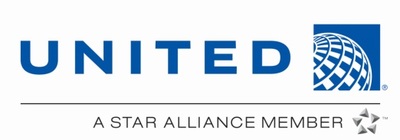United Is First Airline to Purchase Sustainable Aviation Fuel (SAF) for O'Hare International Airport
Rhea-AI Summary
United Airlines has become the first airline to purchase sustainable aviation fuel (SAF) for use at O'Hare International Airport in Chicago. The airline will receive up to 1 million gallons of Neste MY Sustainable Aviation Fuel™ through the end of 2024, with the first supply arriving in August. This initiative was supported by Illinois' SAF tax credits, highlighting the state's commitment to sustainability and clean energy.
United led U.S. airlines in annual SAF volumes used in 2023, and O'Hare is now the fifth airport where United has purchased SAF for operational use. The airline aims to reach net zero greenhouse gas emissions by 2050 without relying on voluntary carbon offsets. United has been actively advocating for legislation to grow the SAF market and has helped secure SAF tax credits in several states.
Positive
- United Airlines becomes the first to purchase SAF for O'Hare International Airport
- United to receive up to 1 million gallons of SAF through end of 2024
- United led U.S. airlines in annual SAF volumes used in 2023
- O'Hare is the fifth airport where United has purchased SAF for operational use
- United aims to reach net zero greenhouse gas emissions by 2050 without relying on voluntary carbon offsets
- United has successfully advocated for SAF tax credits in multiple states
Negative
- None.
News Market Reaction – UAL
On the day this news was published, UAL declined 2.55%, reflecting a moderate negative market reaction.
Data tracked by StockTitan Argus on the day of publication.
Governor Pritzker joins United leaders to highlight the role that Illinois SAF tax credits played in paving the way for SAF at O'Hare in 2024; first supply to arrive in August
United will receive up to 1 million gallons of Neste MY Sustainable Aviation Fuel™ through end of 2024
United led
SAF producer Neste will provide up to 1 million gallons of Neste MY Sustainable Aviation Fuel™2 to United at ORD in 2024 with the first supply arriving in August.3
United was the first airline to create a goal of reaching net zero greenhouse gas emission by 2050, without relying on voluntary carbon offsets, and remains a
"Since day one as Governor, I've committed to making
SAF is an alternative to conventional jet fuel that can reduce GHG emissions by up to
"This is what happens when innovation, leadership and policy come together," said United President Brett Hart, who was at ORD today with the Governor. "While the market for SAF is still in its infancy, there is a huge opportunity today for airlines and policymakers to work together to support its continued growth – SAF at O'Hare was made possible thanks to Governor Pritzker and the Illinois Legislature passing tax incentives."
United has now purchased SAF for airports in
"I'm pleased to see United Airlines making this significant move forward by using sustainable aviation fuel daily in flights from O'Hare,"
United SAF Policy Leadership
United is a chief advocate for legislation to grow the SAF market, and helped push for the successful adoption of a federal SAF Blender's Tax Credit, DOT grants to promote SAF usage, and incentives for hydrogen production and carbon capture. At the state level, the airline has helped secure the passage of SAF tax credits in
To further develop and deploy SAF in the
United Leadership & Coalition Building
United's roadmap to achieve its emission goals includes driving operational efficiencies, adding hundreds of new, fuel-efficient planes, using SAF, and investing in other low carbon onboard products and alternate propulsion technologies.
Importantly though, the airline recognizes that no one carrier or industry can solve climate change alone and that's why United has also rallied the business community to scale more sustainable aviation fuel.
- SAF purchased for United's flights is paid for in part through the company's Eco-Skies AllianceSM, where participating companies work together to share the "green premium," or the cost associated with purchasing lower emission fuels. Since 2021, the alliance has collectively contributed toward the purchase of more than 10.5 million gallons of SAF.
- ESA companies include: Autodesk, Bank of America, BCG, DB Schenker, Envirotainer, First Eagle Investments, Marken, Thermo Fisher Scientific, Salesforce, Meta, ZS, SEKO, Sidley
Austin LLP, Yusen Logistics
- ESA companies include: Autodesk, Bank of America, BCG, DB Schenker, Envirotainer, First Eagle Investments, Marken, Thermo Fisher Scientific, Salesforce, Meta, ZS, SEKO, Sidley
- Launched in 2023, the UAV Sustainable Flight FundSM is a first-of-its-kind investment vehicle designed to leverage support from cross-industry businesses in order to support start-ups focused on decarbonizing air travel. The fund is comprised of more than
$200 million
About United
At United, Good Leads The Way. With
Forward-Looking Statements and Other Important Information
This press release contains certain "forward-looking statements" within the meaning of the Private Securities Litigation Reform Act of 1995 relating to, among other things, plans and projections regarding the company's environmental, social or governance (ESG) goals, targets, commitments, strategies and initiatives and related business and stakeholder impacts. All statements that are not statements of historical facts are, or may be deemed to be, forward-looking statements. Such forward-looking statements are based on historical performance and current expectations, estimates, forecasts and projections about our future financial results, plans, objectives, goals, targets, commitments, strategies and initiatives and involve inherent risks, assumptions and uncertainties, known or unknown, including internal or external factors that could delay, divert or change any of them, that are difficult to predict, may be beyond our control and could cause our future financial results, plans, objectives, goals, targets, commitments, strategies and initiatives to differ materially from those expressed in, or implied by, the statements. These risks, assumptions, uncertainties and other factors include, among others, any failure to meet stated ESG goals, targets, commitments, strategies and initiatives in the time frame expected or at all as a result of many factors, including changing societal, market, competitive, regulatory or stakeholder expectations, and any delay or inability of United Airlines to realize the expected benefits of the transaction, including from a delay or failure of any project to be fully developed or become operational or to produce sustainable aviation fuel or other ESG-related product in the amounts contemplated or at all. No forward-looking statement can be guaranteed. Forward-looking statements in this press release should be evaluated together with the many risks and uncertainties that affect United's business and market, particularly those identified in the "Management's Discussion and Analysis of Financial Condition and Results of Operations" and "Risk Factors" sections in United's Annual Report on Form 10-K for the year ended December 31, 2023, as updated by our subsequent Quarterly Reports on Form 10-Q, Current Reports on Form 8-K and other filings with the Securities and Exchange Commission. Risks and uncertainties related to United's environmental compliance, climate commitments and climate strategy are further described in Part I, Item 1A. Risk Factors of United's Annual Report on Form 10-K for the fiscal year ended December 31, 2023—"We are subject to many forms of environmental regulation and liability as well as risks associated with climate change and may incur substantial costs as a result. In addition, failure to achieve or demonstrate progress towards our climate goals may expose us to liability and reputational harm."
The statements included in this press release are made only as of the date of this press release and except as otherwise required by applicable law or regulation, United Airlines undertakes no obligation to publicly update or revise any statement, whether as a result of new information, future events, changed circumstances or otherwise. In particular, United Airlines reserves the right to change, amend, supplement or abandon some or all of the statements regarding goals, targets, commitments, strategies, initiatives, intentions and other statements from time to time without notice.
1SAF must be blended with conventional jet fuel in accordance with current regulatory requirements to be used as fuel for an aircraft.
2When used in neat form (i.e. unblended) and calculated with established life cycle assessment (LCA) methodologies, such as CORSIA methodology, using Neste MY Sustainable Aviation Fuel reduces greenhouse gas emissions by up to
3United requires its SAF to be certified by an independent, third-party certification system, like the International Sustainability and Carbon Certification (ISCC) or Roundtable for Sustainable Biomaterials (RSB), as compliant with certain sustainability criteria.
![]() View original content to download multimedia:https://www.prnewswire.com/news-releases/united-is-first-airline-to-purchase-sustainable-aviation-fuel-saf-for-ohare-international-airport-302210481.html
View original content to download multimedia:https://www.prnewswire.com/news-releases/united-is-first-airline-to-purchase-sustainable-aviation-fuel-saf-for-ohare-international-airport-302210481.html
SOURCE United Airlines








